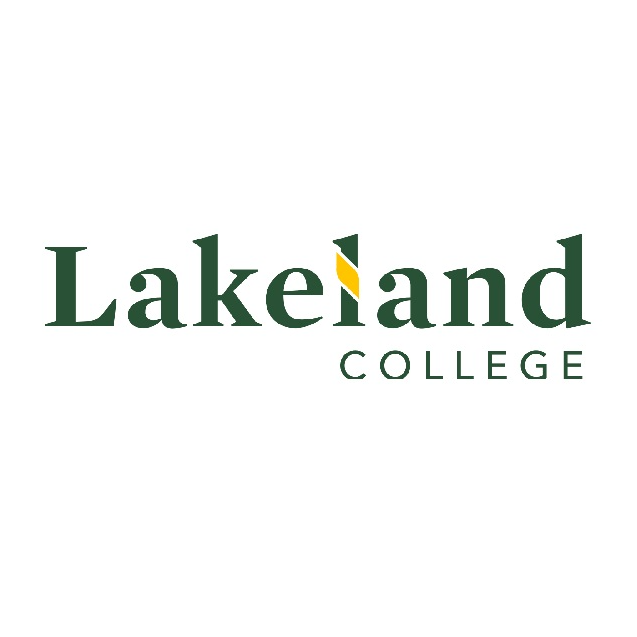• TOEFL
Know The Differences Between IELTS and TOEFL!
13498 Reads
3 min Read
IELTS, is widely accepted and is utilized for immigration, academic, and employment objectives. It can be finished in up to 2 hours and 45 minutes, whereas The TOEFL, is designed to measure your proficiency in speaking and writing English in academic, university, and classroom settings which can take up to 4hours.Speaking, writing, listening and reading are the four categories of language that are evaluated in each of the two examinations. But the TOEFL has multiple-choice questions only, while the IELTS has a combination of essay- and short-answer questions.
Table of Contents
When planning to study abroad in an English speaking country, you are most likely to submit either an IELTS or TOEFL score. And we have to take TOEFL or IELTS coaching for that! We all know that both of these are standardized tests that determine your English level by assessing your writing, reading, listening, and speaking skills. But, they are different in many aspects like format, scores, cost, structure, approach, teaching criteria, and more. In this blog post, we will explore the differences between IELTS and TOEFL that help you make a decision which test is right for you:
Let us start with the meaning:
IELTS short for International English Language Testing System that is recognized globally. It is used for immigration, educational, and occupational purposes. Whereas, TOEFL or Test of English as a Foreign Language test seeks to test your ability to communicate in English, specifically in academic, university, and classroom-based settings.
Comparing IELTS and TOEFL (time and format)
The internet-based TOEFL can take up to 4 hours to complete, while IELTS takes up to 2 hours and 45 minutes. Both the tests consist of 4 modules to assess the different aspects of the language- speaking, writing, listening, and reading. TOEFL, however, is fully multiple-choice while, IELTS is a mix of essay-type and short-answers type questions.
Test scores
Humans and automated scoring systems grade the TOEFL. The score is structured differently with 1 point for each question, and that makes a final score out of 120. A candidate will receive a score from 0-30 for each module. Along with your TOEFL scores, candidates will receive a performance feedback report as well.
In the case of IELTS, human only grades the test. It has separate scores for each module from 1-9. So, if you didn’t perform well in one of the modules, the average overall score will go down. The IELTS scorecard will help you identify your English proficiency level- a non-user score is 1, and an expert score is 9.
Also read: What is TOEFL
The difference in the speaking module
The major difference between the speaking modules of IELTS and TOEFL is a microphone. If you are more comfortable communicating in English with a person face to face than in a microphone, then IELTS is more suited for you. In IELTS, the speaking module takes just 12-15 minutes and is conducted in a normal conversational form. Whereas, the TOEFL speaking module consists of 6 sections that last 20 minutes. In two sections, your opinions will be asked on the every-day topics.
Listening Module
In the IELTS listening module, the candidate will have 20 minutes to answer 10 questions while the audio is playing. The questions that are asked in this module are on topics such as dealing with situations in an education and training context. Whereas in TOEFL, you will listen to four to six recordings, and then candidates have to answer questions based on them.
Writing
The writing module of IELTS and TOEFL consists of two parts that require students to write a short essay. In IELTS, students are given a graph or a chart and 20 minutes to write a short essay of 150 words based on them. While in TOEFL, the student has to read a short text on a certain topic and then listen to a two-minute lecture about the same. Then, they have to write 320-350 words in response to a question about the topic.
Reading
Both IELTS and TOEFL provide academic texts followed by questions that assess students how well they understand the text. In IELTS, the reading module consists of 40 questions divided into three parts with varying styles of questions that include short answers and fill the gap questions. While in TOEFL, the reading module consists of multiple-choice questions and is divided into three to five parts of passages.
If you are planning to study abroad, then you have to undertake IELTS or TOEFL. Thousands of universities and colleges across the globe accept IELTS and TOEFL test results. It is on you, which you want to take and with which format you are more comfortable. If you are still confused, then visit Canamprep, a top IELTS coaching institute and our experts will help you find the right test for you.
Also read: IELTS Exam type
FAQ
Get great articles direct to your inbox
The latest news, articles, and resources, sent straight to your inbox every month.
Popular Universities to Study Abroad
World class education waiting for you.

Lakeland College - Vermilion Campus
Alberta, Canada • 21 Programmes
Tuition Fee : CAD 17000-21000 / year


Ulster University - London Branch campus
England, UK • 16 Programmes
Tuition Fee : GBP 12000-17000 / year

Devry University - Ontario Campus
California, USA • 30 Programmes
Tuition Fee : USD 15000-16000 / year
.png)
Coast Mountain College - Smithers Campus
British Columbia, Canada • 7 Programmes
Tuition Fee : CAD 13500-14500 / year
.webp)
Conestoga College - Brantford Campus
Ontario, Canada • 53 Programmes
Tuition Fee : CAD 14000-21500 / year

Contra Costa Community College District - Diablo Valley College
California, USA • 108 Programmes
Tuition Fee : USD 10000-11000 / year

Popular English Language Proficiency Exams
Blogs and Articles
Curated content to keep you updated on the latest education trends, news and more.
Updated on • Jul 17,2025 05:33 PM IST • USA
PTE Accepted Universities in Australia
Updated on • Jul 17,2025 05:09 PM IST • PTE
Part-Time Jobs for International Students in Australia
Updated on • Jul 17,2025 03:44 PM IST • Australia
Updated on • Jul 12,2025 04:02 PM IST • USA
Updated on • Jul 11,2025 11:32 AM IST • Education
CPT vs OPT: Meaning, Difference, and How to Apply
Updated on • Jul 11,2025 10:40 AM IST • USA
Masters in Computer Science in UK: Top Colleges, Eligibility, Scholarships
Updated on • Jul 10,2025 11:29 AM IST • study in the UK
Highest Paying Jobs in the World
Updated on • Jul 08,2025 01:40 PM IST • Study Abroad
MBA in Australia for Indian Students: Best Universities, Requirements, Scholarship, Courses, Jobs
Updated on • Jul 08,2025 01:35 PM IST • Australia
Canada vs Australia: Which Country is Better for Indian Students in 2025?
Updated on • Jul 07,2025 12:46 PM IST • Education
France vs Germany: Which Is Better for International Students?
Updated on • Jun 30,2025 05:15 PM IST • Education
Top 10 Agricultural Universities in USA
Updated on • Jun 27,2025 05:25 PM IST • USA
Most In-Demand Future Careers in 2025
Updated on • Jun 26,2025 04:41 PM IST • Education
How Much Do Nurses Make in the U.S.?
Updated on • Jun 23,2025 03:59 PM IST • USA
Updated on • Jun 21,2025 02:00 PM IST • USA
MBA in UK: Universities, Eligibility, Types, and Career Opportunities
Updated on • Jun 19,2025 04:09 PM IST • UK • study in the UK
Scholarships in France for Indian Students
Updated on • May 29,2025 05:22 PM IST • France
Intakes in Dubai for Indian Students
Updated on • May 27,2025 03:34 PM IST • Study in Dubai
France Student Visa 2025 – Requirements, Fees, Checklist & Application Process
Updated on • May 23,2025 03:36 PM IST • France
MBA in France for Indian Students in 2025
Updated on • May 22,2025 05:35 PM IST • France
Related Blogs and Articles
A little effort to provide an authentic and reliable content for keen readers!!
How can I Master TOEFL Vocabulary?
Updated on • 16-08-2024 • TOEFL
Updated on • 13-08-2024 • TOEFL
TOEFL Accepted Universities in USA
Updated on • 08-07-2024 • TOEFL
How Long is the TOEFL Score Valid?
Updated on • 08-03-2024 • TOEFL
A Guide to Minimum TOEFL Score for Canada Student Visa
Updated on • 12-02-2024 • TOEFL
TOEFL score chart: TOEFL iBT Scores
Updated on • 08-02-2024 • TOEFL
TOEFL Accepted Universities in UK
Updated on • 31-01-2024 • TOEFL
TOEFL Inference Questions: Examples, Tips and Strategies to Answer Inference Questions
Updated on • 12-09-2023 • TOEFL
TOEFL Writing Topics and Tips to Prepare for the TOEFL Exam
Updated on • 01-09-2023 • TOEFL
TOEFL Reading: An Introduction to TOEFL Reading Section
Updated on • 08-08-2023 • TOEFL
Types of Questions in TOEFL Speaking Task 1
Updated on • 05-08-2023 • TOEFL
TOEFL Reading Factual Questions: Samples, and Tips for Reading Factual Information Questions
Updated on • 02-08-2023 • TOEFL
TOEFL Preparation: Learn the Best Tips & Strategies
Updated on • 14-07-2023 • TOEFL
TOEFL Listening: An Introduction to TOEFL Listening Section
Updated on • 11-07-2023 • TOEFL
TOEFL or IELTS: Which test should you take to study abroad?
Updated on • 08-07-2023 • TOEFL
TOEFL Reading: Negative Factual Questions
Updated on • 04-07-2023 • TOEFL
TOEFL Exam Fee in India 2023 : Everything You Need to Know
Updated on • 22-06-2023 • TOEFL
Top Tips to ace Your TOEFL Listening Module
Updated on • 22-06-2023 • TOEFL











